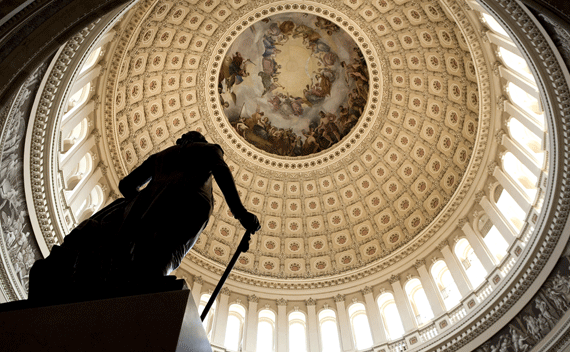Campaign 2012 Roundup: Huntsman on Cain, Paul on "Isolationism"
More on:

Only a smattering of foreign policy news from the campaign trail over the weekend:
Herman Cain drew some barbs on the Sunday morning news shows for not knowing enough about foreign policy. Former New Mexico Governor Bill Richardson told David Gregory on NBC’s “Meet the Press” that “you can’t have presidential candidates and not have some kind of interest and degree and knowledge of foreign policy.” Later on the show, Gregory probed GOP presidential candidate Jon Huntsman on the gaps in Cain’s foreign policy knowledge. The former Utah governor answered:
Well, I think there needs to be a baseline, a level of knowledge from a foreign policy standpoint. But specific to China, I mean, as far as the eye can see into the 21st Century, the United States and China are on the world stage. And whether that’s in the economic realm or whether it’s in the security realm, we’ve got to figure out how to make that relationship work. And it would be nice to have a president in office who actually had a head-start and actually knew them intimately well in terms of the economics and the security issues involved.
On ABC’s "This Week," former Secretary of State Condoleezza Rice said that Cain’s comment on Uzbekistan “wasn’t the greatest thing to say if you’re running for president.”
Ron Paul made the case for his non-interventionist approach to foreign policy on “Fox News Sunday.” Host Chris Wallace asked Paul to respond to Republicans who “are upset with what they view as isolationist views when it comes to fighting the war on terror.” Paul’s answer:
I think that is a false charge about isolationism. Isolationism is when you put on tariffs and protectionism and you don’t want to trade with people and you don’t want to travel.And mine is the opposite. Mine is really very open. But I don’t want troops around the world because I think it hurts our national defense. By having too many troops, it helps to bankrupt our country, the wars that we have been fighting, that were undeclared—and from view point is unconstitutional and illegal.
But in the last 10 years, this foreign expenditure around the world has contributed about $4 trillion worth of our debt. We can’t change that.
But I think we’re better off serve—our national security is better off by a different foreign policy. That’s my argument.
It’s easy to see why Paul doesn’t like to be labeled an “isolationist.” It’s a pejorative term in American politics. That said, his definition is, how shall we say, non-standard. Isolationists such as William Borah and Charles Lindbergh favored trade. What they opposed were “entangling alliances,” to borrow Thomas Jefferson’s classic phrase.
On foreign policy specifics, Paul said that Iran does not pose a threat to anyone in Middle East, so he would engage Iranian leaders by “offering friendship to them.” Paul also said he would pull U.S. troops out of the Middle East, and he condemned the use of drone strikes because he believes they create more enemies than they kill.
Just fifteen days until the GOP candidates gather for the debate that CNN, AEI, and Heritage are sponsoring on foreign policy and national security. (That debate, which was originally scheduled for November 15, has been pushed back to November 22.) What one foreign policy or national security question would you like the candidates to answer?
More on:
 Online Store
Online Store